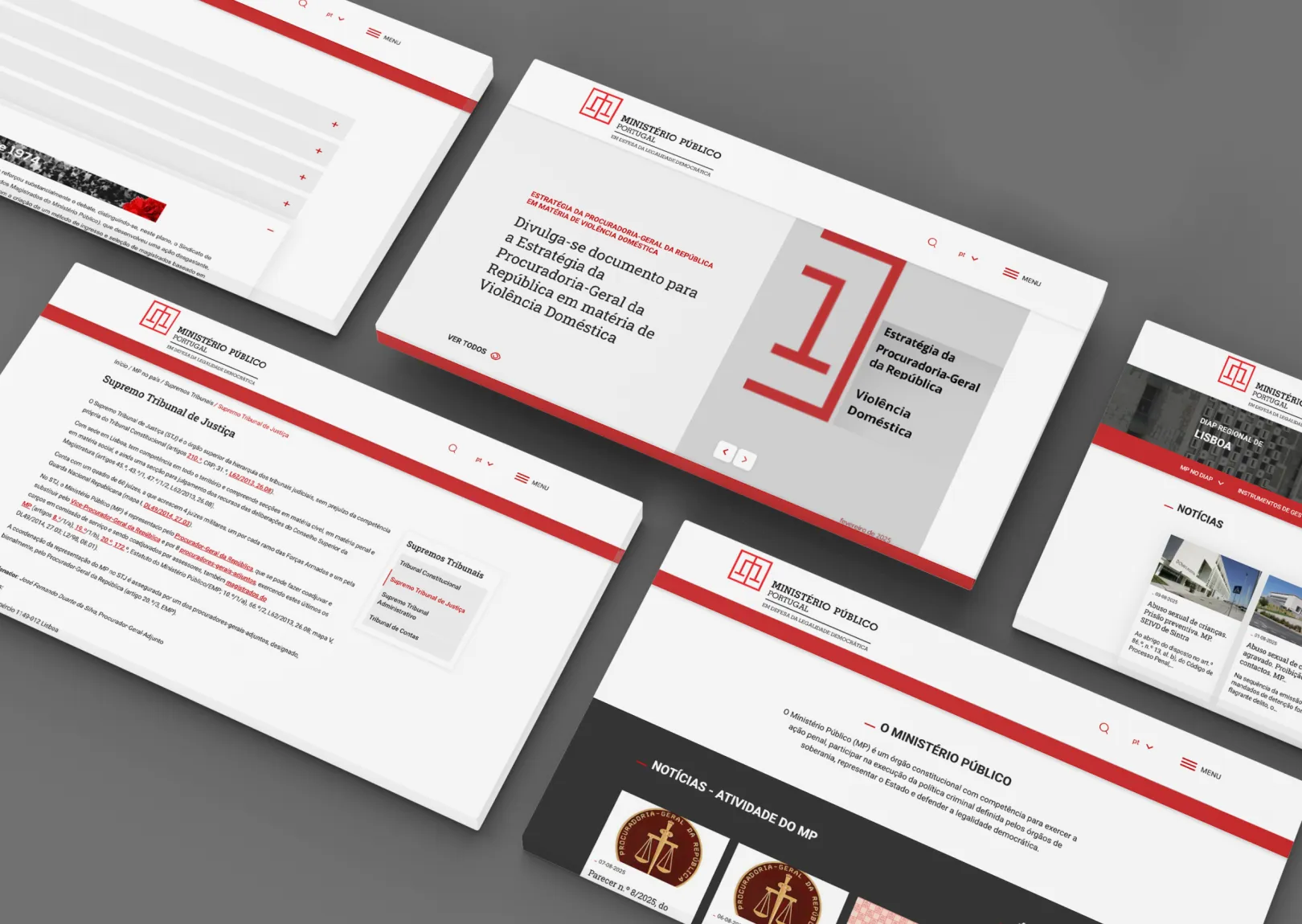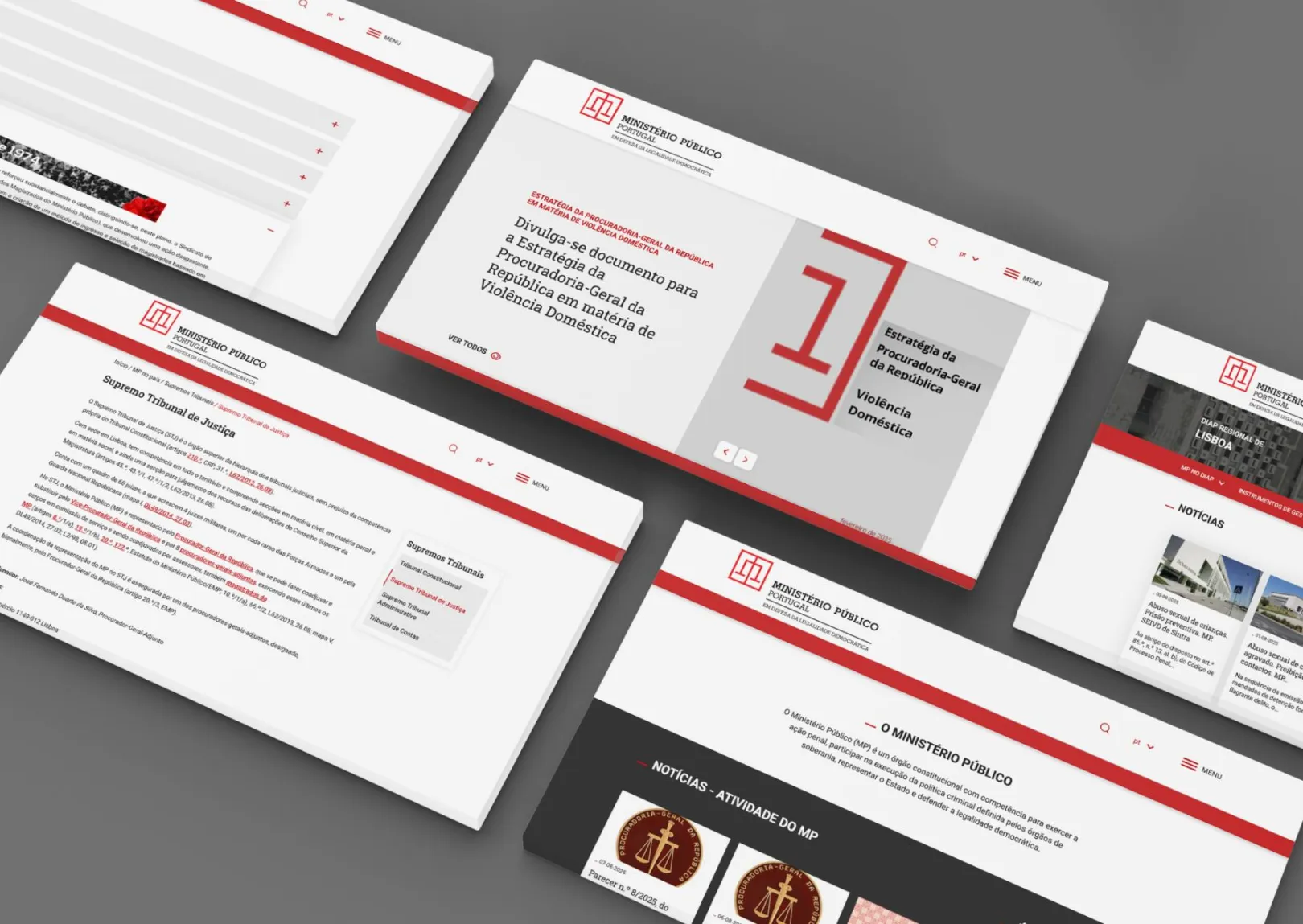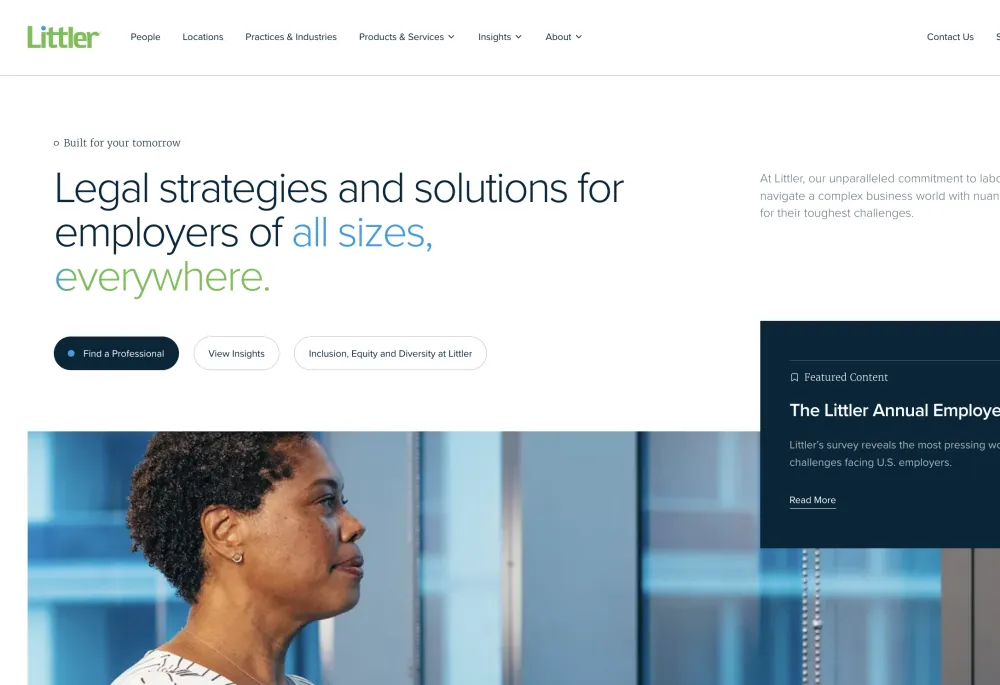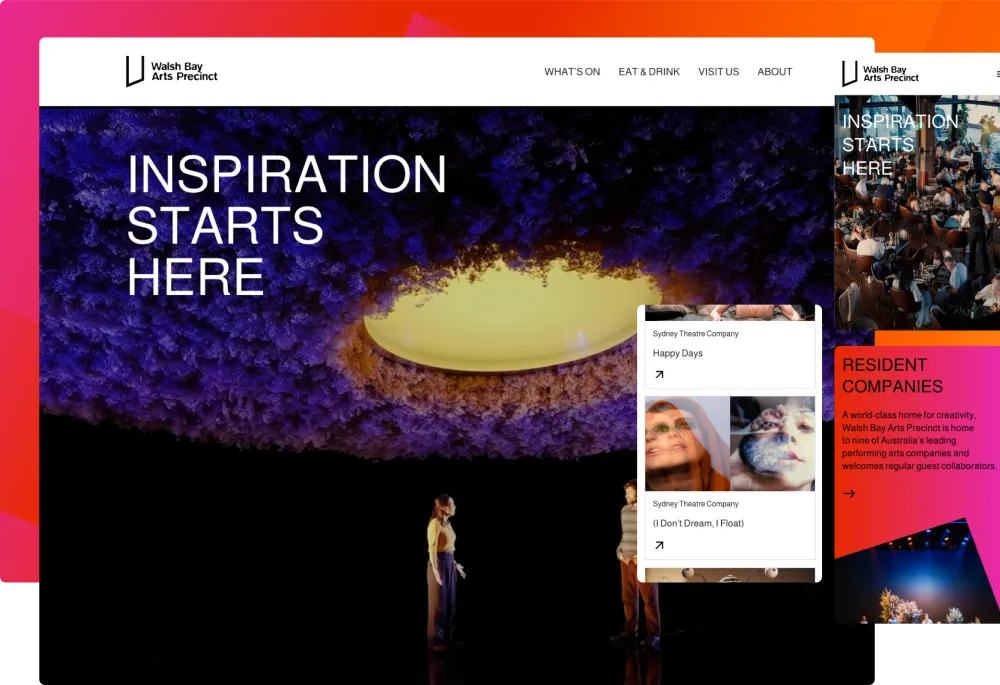Sector(s)
Project Team
- JAVALI – Technical development, migration, integration, and ongoing maintenance
The redevelopment of the PGR portal was driven by an agile and collaborative approach that ensured clear communication, flexibility, and alignment with the institution’s evolving needs. From the outset, the project relied on close coordination between JAVALI and the PGR’s technical and communications teams, enabling swift decision-making and continuous validation of deliverables.
The team combined Drupal developers, UX/UI designers, and system administrators, each contributing specialised expertise. Developers focused on implementing the multisite architecture and creating custom modules to integrate over 40 institutional websites into a single, cohesive platform. UX/UI designers worked on an intuitive and accessible interface, compliant with WCAG standards and aligned with the PGR’s institutional Design System. System administration and DevOps specialists ensured the platform’s stability, security, and performance.
Work was structured in short, iterative development cycles, allowing the most important features, integrations, and performance optimisations to be delivered early. Frequent checkpoints with the PGR ensured that priorities could be adjusted quickly in response to feedback or emerging requirements, without compromising deadlines or quality.
This adaptive approach allowed the team to respond effectively to changes, maintain momentum throughout the project, and deliver a robust, secure, and future-ready platform. The result is a solution that meets the PGR’s operational demands and supports its broader mission of providing transparent, accessible, and reliable public services.
- Procuradoria-Geral da República – Client and responsible for functional/institutional validation
Visit the site
Visit the siteOrganizations Involved
Community contributions
During the development, the JAVALI team played an active role in the Drupal community, contributing with significant improvements:
- Creation of a module to meet the project’s needs, later shared with the Drupal community: https://www.drupal.org/project/orgchart
- Compatibility testing with future versions of the Drupal core, helping to anticipate issues and ensure stability
- Accessibility fixes were implemented in the project and shared with the community
These contributions reinforce JAVALI’s position as a strategic partner in the technological modernization of Public Administration, promoting the sustainable and responsible use of open-source technologies.
About the client:
The Prosecutor General’s Office (Procuradoria-Geral da República/PGR) is the highest authority of the Public Prosecutor’s Office in Portugal, responsible for directing, coordinating and supervising public prosecutors. With dozens of departments and regional offices across the country, the PGR required a centralized, secure, scalable, and accessible digital platform to effectively communicate with citizens and integrate its various internal services and information areas.
About the project
The former PGR portal, built in Drupal 7, was increasingly limited in scalability, performance, and compliance with the latest accessibility and security standards.
The migration to Drupal 10 posed several challenges:
- Ensuring a robust and automated migration of all content and editorial structure
- Integrating the Regional Prosecutor’s Offices of Lisbon and Porto
- Unifying the digital experience in a centralized multisite system
- Enhancing accessibility for citizens with special needs
- Delivering a modern, responsive, and secure platform prepared for future growth
The new platform was developed with a multisite architecture in Drupal 10, utilizing the Domain module, which consolidates more than 40 institutional websites into a single technological infrastructure. JAVALI led the full data migration process from Drupal 7, guaranteeing complete content integrity and preserving editorial structure.
Custom modules were developed and used to support content organization by entity, thematic area, and user type, alongside a granular permissions system with advanced editorial workflows. The design was rebuilt with a custom institutional Design System, ensuring visual consistency, full mobile responsiveness, and compliance with WCAG accessibility standards.
Navigation performance was optimized through smart caching, lazy loading, and internal search engine integration. The platform also incorporates bidirectional web services integrations with multiple internal PGR systems, including legislation databases, legal opinions, and other institutional resources.
Why Drupal was chosen
Drupal was selected as the content management system due to its robustness, security, and flexibility—essential characteristics for a public institution with complex and evolving needs. As an open-source technology, Drupal offers technological independence and a mature ecosystem, ensuring scalability, long-term viability, and compliance with international best practices in areas such as accessibility and data protection (GDPR).

Technical Specifications
Drupal version:
Key modules/theme/distribution used:
The new portal was developed in Drupal 10.1.x, the latest stable version at the time of launch, using a multisite architecture built on the Domain module to consolidate all institutional websites into a single platform. The migration process was fully automated, ensuring the complete transfer of content and editorial structure from Drupal 7 without data loss or disruption.
To support the institution’s operational needs, the platform includes bidirectional web services integrations with internal PGR systems, enabling direct access to legislation databases, legal opinions, and other institutional resources. It also features custom modules for managing prosecutors’ offices, departments, and thematic content, along with a fully responsive layout designed with the institutional Design System for visual consistency and accessibility compliance.
Editorial control is managed through granular user roles and permissions, while a powerful internal search engine ensures quick and accurate access to relevant information. Performance has been optimized with smart caching strategies and lazy loading, and content is built with Paragraphs to allow flexible page layouts.
Finally, the portal incorporates advanced SEO capabilities using Metatag, Simple Sitemap, Pathauto, and Redirect modules, and is fully GDPR-compliant thanks to integrated privacy and consent management tools.




